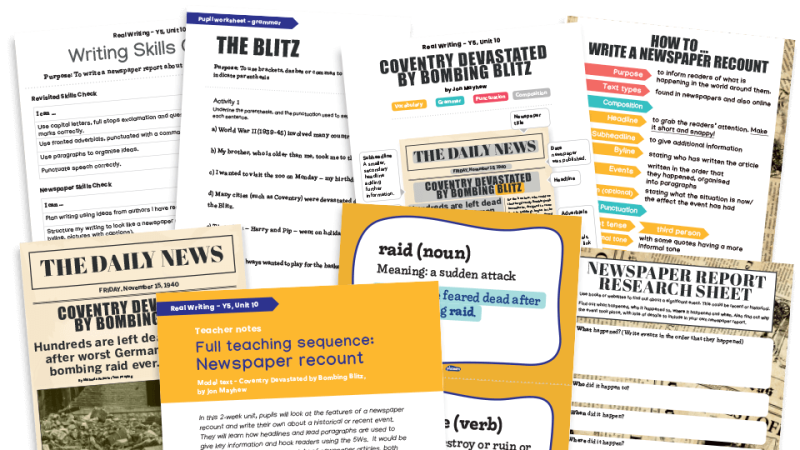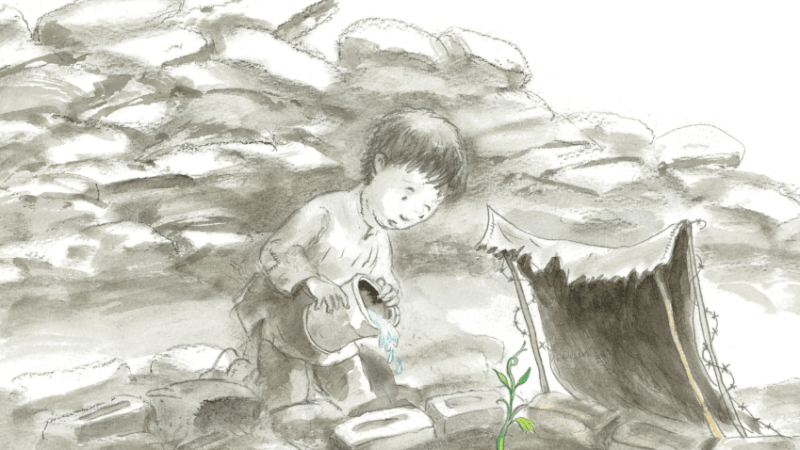“Done Well, Philosophy For Children Can Raise Achievement”

Dust off your Descartes – philosophy’s back on the agenda and making waves in literacy, as Anna Blewett discovered…
- by Anna Blewett

Could philosophy provide a key to unlocking the reading potential in our most disengaged and disadvantaged kids? When the Education Endowment Foundation (EEF) tested Philosophy for Children, or ‘P4C’, in its quest to break the link between a child’s background and academic attainment, it sparked debate about the value of, well, debate.
More than 48 schools – 3,000 children from Years 4 and 5 – took part in the study to evaluate the benefit of the approach. Headline findings suggest that, over the course of a year, an hour of guided philosophical enquiry each week gives pupils a two-month advantage over peers studying the original curriculum. What’s more, pupils on free school meals actually recorded reading skills four months ahead of those in the control group, with writing also given a twomonth boost. So what went on?
The trainer
Bob House, chief executive of SAPERE
For the study we encouraged teachers to dedicate specific time for P4C sessions – a solid hour or two half-hour sessions a week. The sessions have a clear structure and progression: they start with a stimulus – a story or video, something to prompt a discussion – and move on to a selection of questions, then a discussion and finally a reflection on that discussion.
One of the fundamental principles is assertions must be supported with a reason, and pupils are actively encouraged to disagree with others. It’s not about conveying specific concepts but trying to get broader thinking going in relation to topics that come up in the curriculum. So if the class topic was the First World War, a relevant enquiry might raise ideas like ‘Is there such a thing as a just war?’
Often the trickiest thing about it for teachers is handing some of the control of the classroom back to the kids. The teacher chooses the stimulus but the children develop and select the questions to be discussed. That means the teacher can’t necessarily predict where the lesson will go or the content of the discussion. And it’s about moving from closed questions to more open questions, creating a less predictable teaching situation.
As far as evaluation goes, we suggest teachers look at the mix in the class – those who perform to expectations, those who are behind or above – and monitor how that changes over time. You‘d expect to see, as a result of P4C, a higher and higher proportion of the class meeting or exceeding expectations. We provide monitoring frameworks for that, but I’d also say it’s not all about academic progress. There are non-cognitive benefits such as self-esteem. A lot of teachers say kids who have always been quiet in lessons find their voice through P4C, and then come out with some really insightful comments.
The critic
Dennis Hayes, professor of education at University of Derby
My criticism of the study is that anything that is taught with real enthusiasm will have a good impact on the children. Philosophy for Children takes thinking about issues like truth, reason, God or justice out of any subject context, and gives the impression children can deal with them without having done a lot of reading and thinking. The reason it’s popular is it flatters children in a way: it says you don’t need to understand the theory of philosophers, just discuss things in a logical way. I’m very wary of people teaching philosophy; I just don’t think it can be made simple.
P4C is actually dumbing down lessons. Education is about subjects but, whether it’s to do with Ofsted or government, teachers often forget that. They shouldn’t be finding space for anything else. Anything else that teachers look for to make life more exciting – happiness classes, ‘brilliance training’, or any of these other popular concepts – are basically wasting children’s time, no matter how much fun they are.
I think more often than not these sessions are just about exploring feelings. If you’ve got a group of kids sitting round talking about bullying, for example, it’s not philosophy. It’s moralising, or exploring feelings in a therapeutic way. I think in the end it produces cynicism, because if you encourage people to be critical when they’ve got no knowledge, in the end they’ll be critical of everything. I’m sure it’s fun, but it’s not really going anywhere.
The researcher
Jonathan Sharples, senior researcher at EEF
How hard is it to evaluate the results of P4C? Hard. It’s not easy to measure thinking skills but ultimately our interest was whether the approach could improve attainment. The primary measure of that in this study was the kids’ Key Stage 2 results in reading, writing and maths. If you improve pupils’ ability to discuss, question, debate, does that transfer into better grades? The results were very promising.
Is it a discussion about feelings? Absolutely not. The teacher picks a big issue: should a healthy heart be donated to someone who didn’t look after themself? Is it okay to wear religious symbols to work? They’re tough, challenging questions and what P4C does is help the teacher facilitate discussions so the pupils get better at thinking, questioning, debating, discussing and arguing. Whilst it’s not on the curriculum, it’s absolutely not content-free. It’s not soft and easy. It was tested against schools that in most cases were spending the extra hour doing the ‘hard stuff’ – literacy lessons – instead, but on average those in the trial improved their reading and maths compared to the control. So the idea P4C’s soft and woolly is not borne out in the evidence.
My advice to schools is: only you can work out if Philosophy for Children can complement what you’re looking to do, but there’s enough evidence to suggest it’s worth thinking hard about. It’s not just that it’s nice to do in lessons; done well it’s a positive way to raise attainment.
The teacher
Paula Moses, assistant head at Millbrook Primary School, Manchester
The EEF study measured real increases in reading comprehension, but we’ve seen the benefits go way beyond that. The kids interact more, question received wisdom, and have become fantastic at forming arguments. The initial stumbling block with P4C is making time every week for a philosophical enquiry, but once we did it we realised it was a no-brainer. I’ve been using P4C in the classroom since 2007 but the study was a great opportunity for our school to train all our Key Stage 2 staff in P4C and really bring it to the forefront.
The stimulus for each enquiry can be anything – I’ve used a pot, a light bulb – but there are lots of brilliant children’s books with philosophical themes. David McKee’s Elmer books or Mr Ben series, for example. We use a planning sheet and think ahead about the concepts that might come up. The children will always surprise you, though. A classic example is reading The Town Mouse and The Country Mouse with Year 2. In the version we had, when the mice were in the country a goose stole their sandwiches. The kids were very concerned about this. So there was I in my planning predicting the text would raise issues about difference, acceptance and materialism, and the kids just wanted to talk about stealing.
As facilitator you have to be prepared to discuss any concept that comes up. You don’t have to say “Nietzsche says this” but you can say “Some people might think X, some people might think Y” and you constantly bring them back to that philosophical question in an age-appropriate way.











